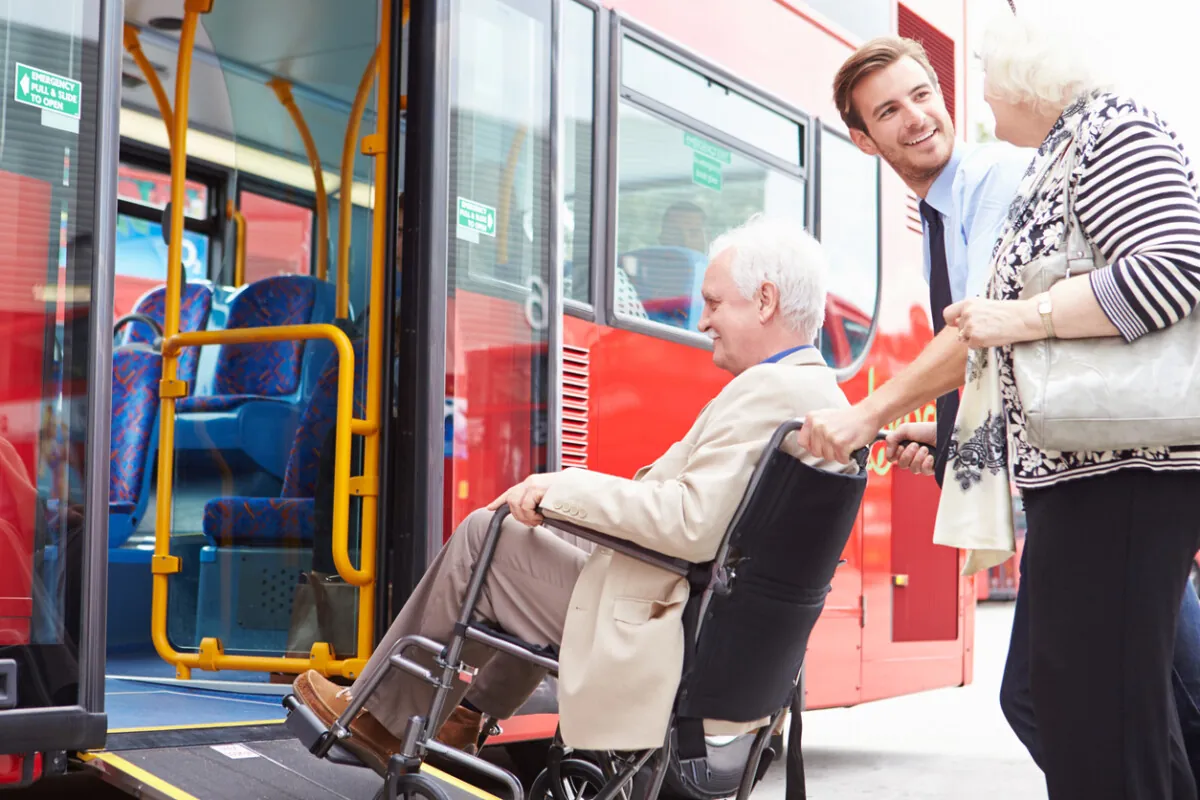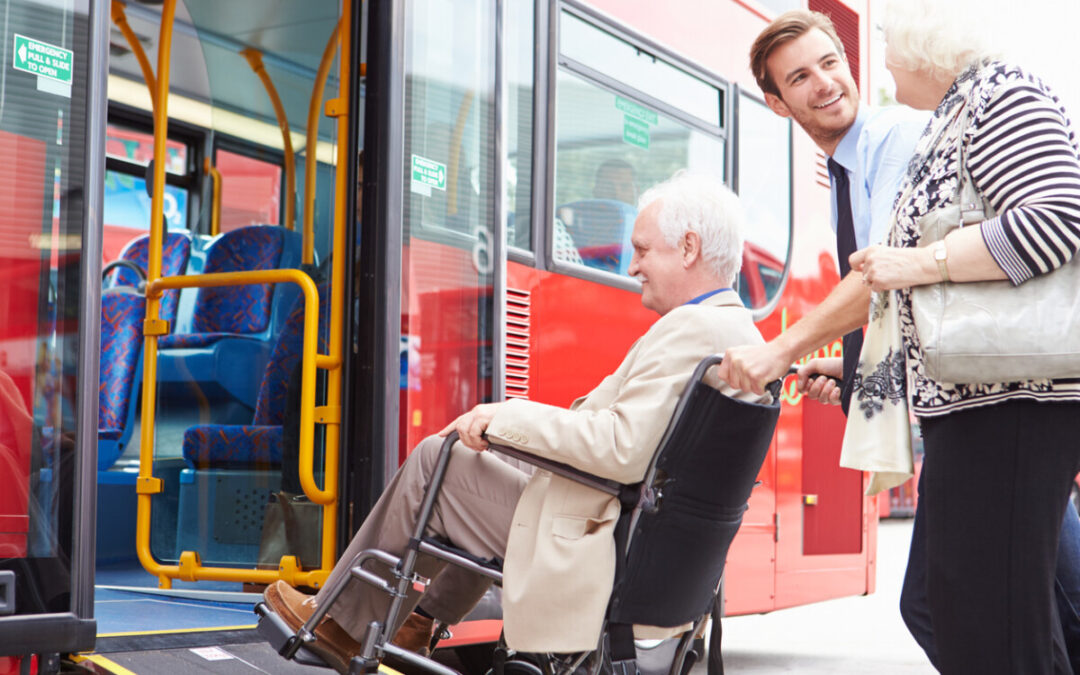For many disabled people, travelling on public transport is the key way to get around. And by law, all public transport vehicles have to be accessible so that disabled passengers can use them. However, this is often not the case. But what are your rights when you’re travelling on public transport?

Rail
A lot of disabled rights laws that relate to railways are derived from an EU directive – specifically Directive 2008/164/EC. This directive, and therefore the further derived laws, apply to all classes of rail across the UK – cross-border, urban, suburban, and regional.
Train and station operators are required by law to establish and comply with a disabled people’s protection policy (DPPP). The DPPP outlines how train companies should protect the interests of disabled passengers.
All train operators are required to provide ramps onto trains that are fit for purpose. These must be made available at all staffed stations, so that passengers who are not as mobile are able to board and leave the train.
If assistance is required at an unstaffed station, the rail operator is required to make a staff member available to facilitate the necessary assistance. However, this must be booked in advance, usually by phone.
On any train, the law requires that “all reasonable efforts” are made to offer assistance to a disabled person to enable them to have access to all the same services on-board a train that other passengers have.
Also be aware that under the current laws, any damage or loss of mobility equipment has to be fully compensated by the rail operator.
Buses and coaches
By law, all buses and coaches need to meet the Public Service Vehicle Accessibility Regulations 2000 (PSVAR). This means that they need to allow access on the vehicle for disabled passengers.
However, the vehicle may not necessarily have to meet these regulations, depending on the size of vehicle, its age, and its purpose. For example, only buses that are large enough to carry 22 passengers or more have to comply with these regulations.
Similarly to trains, the law also requires that bus and coach drivers give “reasonable assistance” to people with disabilities looking to either get on or off the bus. However, this doesn’t mean that they are required to physically lift either a passenger or heavy mobility equipment.
Helpful links
If you’re struggling to get around in London, Transport for All is an organisation that provides advice for disabled travellers and can help plan your route.
Don’t forget, you may be eligible for a free bus pass to travel if you’re disabled. Just visit gov.uk to apply for your disabled person’s bus pass.
There’s also a disabled person’s railcard that you can apply for, which gets you a third off your rail fare.
If you have to pay to travel to a hospital (or any other NHS premises) for treatment or tests, you may be able to claim a refund on your travel costs. Find out more about that here.






